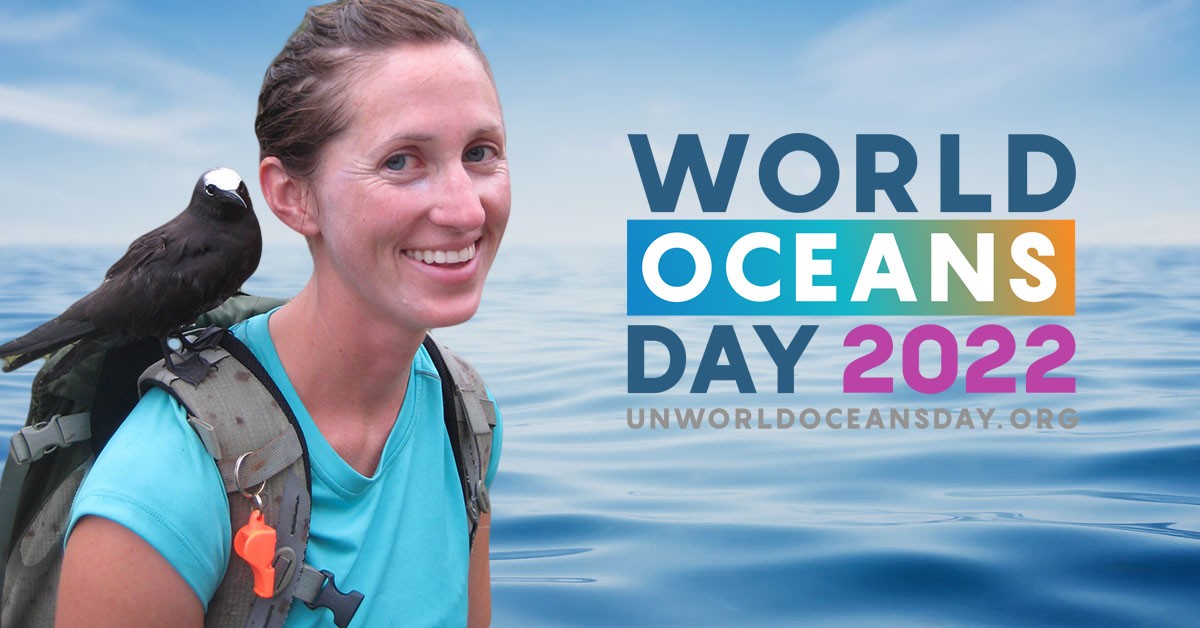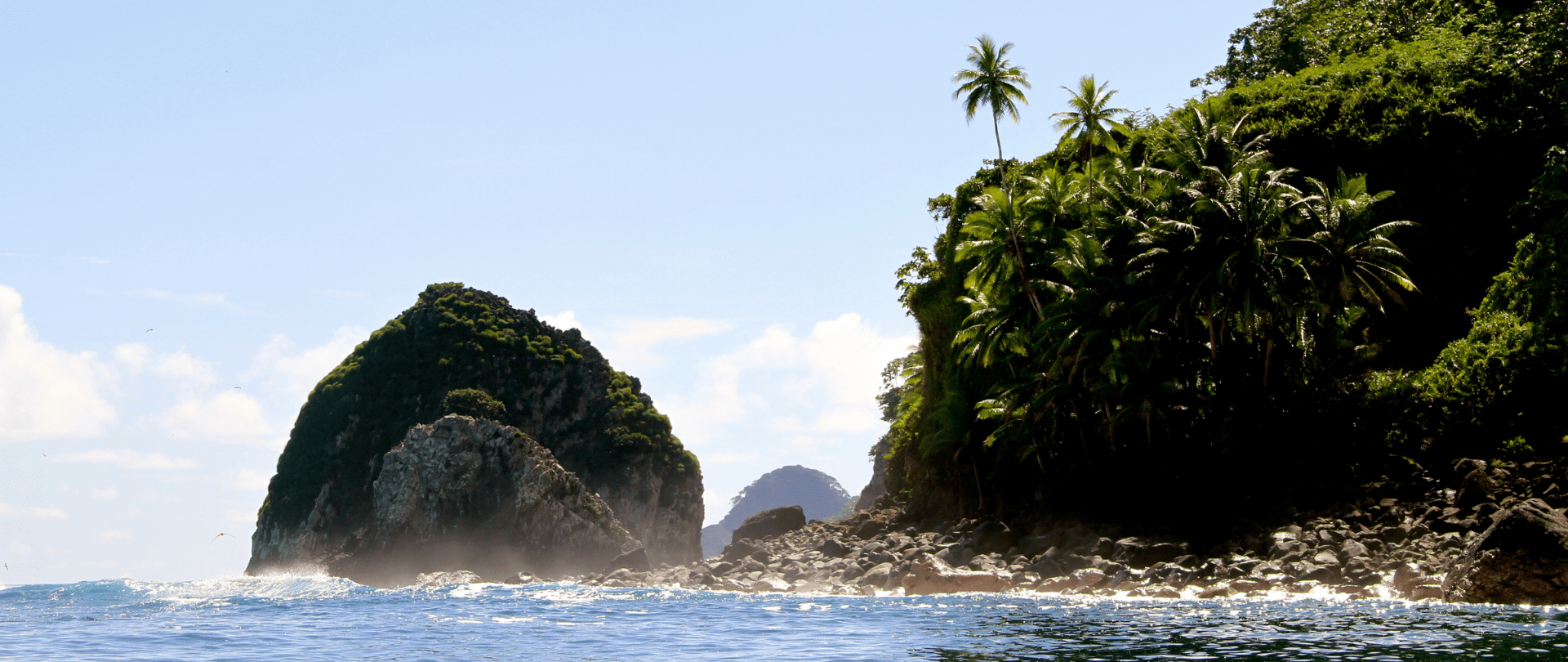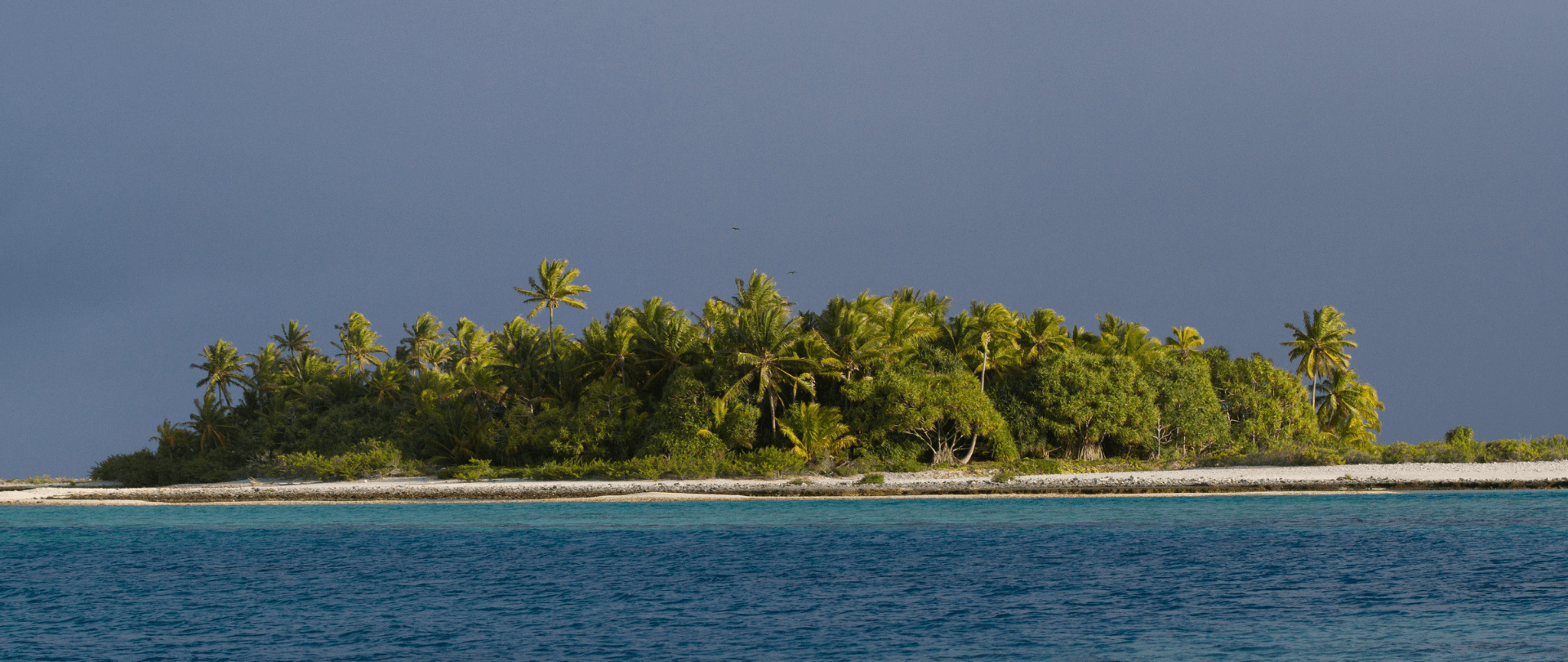The Ebiil Society: Champions of Palau
Ann Singeo, founder of our partner organization the Ebiil Society, shares her vision for a thriving Palau and a flourishing world of indigenous science!
Our 2024 Impact Report is live!
Published on
June 8, 2022
Written by
Matt
Photo credit
Matt

We all have memories of the ocean.
Yes, for some there are personal memories – surfing the waves, building sandcastles, hearing the water crash. But we also share something far more profound.
Our oceanic memories go back billions of years – as a species. After all, life began in the ocean, where the tiniest microscopic organisms evolved into complex creatures. Meanwhile, volcanic forces forced the elements into landforms, which slowly coalesced over millennia. Our most distant ancestors left the water to take residency on the land, ensuring an explosion of terrestrial plant and animal life.
World Oceans Day serves as a reminder that oceans are not just important for understanding our past – they are fundamental to securing our future. They continue to be the life source of every living organism, producing oxygen and housing most of Earth’s biodiversity.
“The ocean is a single body of water and we’re all connected to it – one way or another.”
Coral Wolf has worked with Island Conservation for nearly a decade, and her time spent saving endangered species has forged many memories of the ocean, both personal and professional. “Despite my name, I once knew very little about the marine environment,” she jokes. “But working on islands means you’re often collaborating in the marine space, and oceans have become a significant part of my life.”

In fact, Coral met her husband Alex at the ocean. Or, to be more specific, in the ocean, doing dishes. “We were on Desecheo Island, Puerto Rico. Each field crew member got assigned a partner for the rotation of camp maintenance tasks. He was mine, and some nights we had to clean the team’s dishes. We spent a lot of time talking and getting to know each other in the intertidal, scrubbing pots with sand.”
As her family grew, this marine bond only deepened. Coral’s daughter learned to walk on the sandy beaches of Hawaii: “We lived by a long, open beach where there was hardly anything to trip over, and the sand made for really soft falls. I remember her toddling around, collecting handfuls of seeds and shells. And I’d throw a ball to my dog about a thousand and one times to wear her out.”

Coral grew up inland and remembers seeing the crashing blue waves for the first time; but underneath the waves lay a whole other world. “I put my head underwater and started exploring the mysteries of the ocean for the first time,” she recalls. “You aren’t just handed the luxury of enjoying those aspects – you have to work a little, by putting on a mask to snorkel or dive. Then the things you see are remarkable.”
The theme of this year’s World Oceans Day is Revitalization: Collective Action for the Ocean. “We can think of all the times the ocean has healed us,” suggests Coral.
“We’re part of a cycle, ourselves feeling revitalized by being close to this huge water system. Our efforts to heal the ocean are reciprocal in nature.”
Saving endangered species and restoring their island habitats depends upon an understanding of these reciprocal relationships. “Our restoration work is on the land, but the land is connected to the ocean, and both are tied to the local communities that rely on their resources. Even though we create artificial boundaries, the reality is that everything is interrelated. The ocean is a single body of water and we’re all connected to it – one way or another.”

The revitalization of the oceans is the motivation behind Island Conservation’s latest campaign: The Island-Ocean Connection Challenge. This ambitious collaboration with Re:Wild and the Scripps Institution of Oceanography is centered around collective action, and aims to restore 40 island-marine ecosystems by 2030.
“Now the science is demonstrating subtle connections between terrestrial species and marine life,” says Coral. “For example: nutrients from seabird guano run off the land to feed the ocean. It’s exciting to identify new areas of research, both for Island Conservation and for me as a scientist. I’m always looking to grow my understanding and take it deeper – just like going deeper into the ocean.”
Want to donate to the Island-Ocean Connection Challenge or become one of our Challenge partners? Find out all the information here.
Check out other journal entries we think you might be interested in.

Ann Singeo, founder of our partner organization the Ebiil Society, shares her vision for a thriving Palau and a flourishing world of indigenous science!

This historic agreement aims to protect the marine and coastal areas of the Southeast Pacific.

Our projects to restore key islets in Nukufetau Atoll forecast climate resilience and community benefits in Tuvalu!

Island Conservation attended the 16th meeting of the Conference of the Parties to the Convention on Biological Diversity!

Island Conservation and partners have published a new paper quantifying ecosystem resilience on restored islands!

Climate Week NYC: what is it and why is it important? Read on to find out why Island Conservation is attending this amazing event!

With sea levels on the rise, how are the coastlines of islands transforming? Read on to find out how dynamic islands really are!

Join us in celebrating the most amazing sights from around the world by checking out these fantastic conservation photos!

Rare will support the effort to restore island-ocean ecosystems by engaging the Coastal 500 network of local leaders in safeguarding biodiversity (Arlington, VA, USA) Today, international conservation organization Rare announced it has joined the Island-Ocean Connection Challenge (IOCC), a global effort to…

Island Conservation accepts cryptocurrency donations. Make an impact using your digital wallet today!